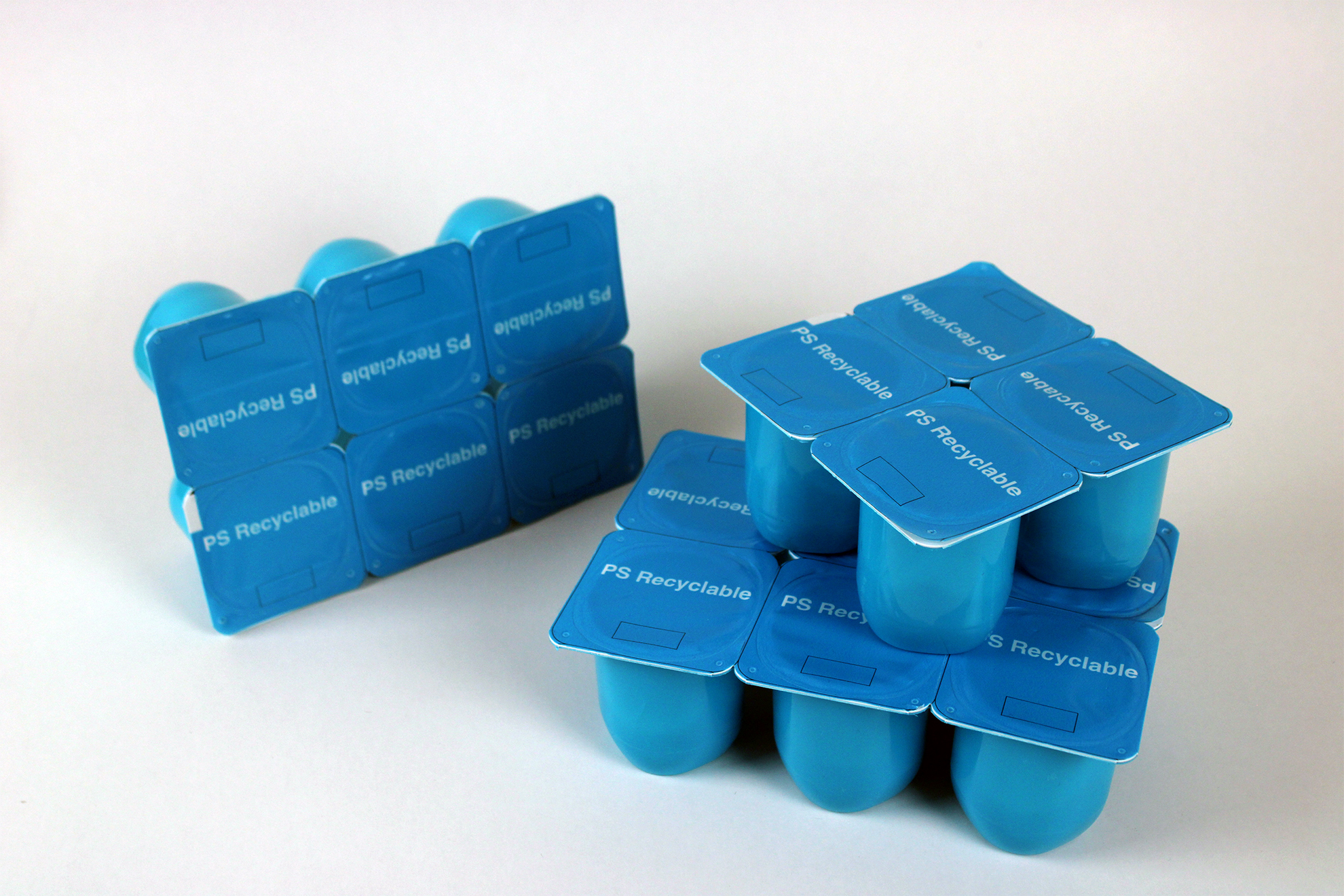The following content contains excerpts from the interview Synerlink’s R&D manager, Dominique Cossais has given to Packaging Europe with Plastiques Venthenat, Amcor, Olga, Cedap and Citeo on the fully recyclable thermoformed PS cup which originally appeared on packagingeurope.com on July 2023.
Synerlink and a consortium of companies have been working for several months on a solution to create a fully recyclable FFS yogurt cup, this project won the Award for “Recyclable Packaging (Pre-commercialized)” on the 14th of November 2023
In a recent interview with Packaging Europe, Dominique Cossais, R&D Manager at Synerlink, shared insights about the fully recyclable thermoformed PS cup project, which was nominated among the finalists of the Sustainability Awards and won on the 14 of November for its role in promoting sustainability.
The project, a collaborative effort among Plastiques Venthenat, Amcor, Citeo, Olga, Cedap and Synerlink aims to promote sustainability within the food packaging in France and across Europe, benefiting food producers, consumers, and regulators alike.
The innovation: A fully recyclable PS cup
Dominique Cossais expressed excitement about joining the project, recognizing its immense potential to benefit the food industry. The innovation centers on a form-fill-seal cup composed of 98.5% polystyrene content, making it fully recyclable.
All around Europe there are lots of FFS machines thermoforming polystyrene in dairy producers’ plants. However, the PS packaging on the market is not recyclable-ready since the banderole around the cup is made of paper, ink and hot melt wax and the lid is also multi-material (ink, paper, glue, polyester and heat seal varnish and/or aluminum).
The new cups are going to be made almost exclusively out of PS plastic: the cup, the lid and the banderole will be composed of polystyrene at more than 98%.
Sustainability benefits: Enhanced recycling and reduced waste
One of the key sustainability benefits of the fully-PS cup lies in its improved sorting efficiency for recycling by improving capture by 20%. Testing of the packaging's recyclability has shown good results, simplifying the sorting process for PS plastics and encouraging the development of a more sustainable packaging ecosystem.
Moreover, the project offers a practical advantage for food producers. By enabling them to upgrade their existing FFS machines to accommodate the new lids and banderoles, the need to invest in new, resource-intensive equipment is minimized.
This project is part of Synerlink’s efforts in innovation and R&D to promote recyclable materials and increase sustainability in the packaging industry, such as last year finalist for the machinery category sustainability awards Snapcut tool that allows producers to switch to PET plastics for thermoforming multipacks on new and existing machines.
Until now, food producers that wanted to switch to recyclable materials for thermoformed packaging, could either invest in new machineries or could adapt existing machines to transform to PET packaging. This approach not only reduces waste associated with building new machinery but also allows producers to continue using PS while enjoying the environmental benefits of recyclable packaging materials.
When did it all start?
Citeo called for an eco-design project back in April 2019 leading Plastique Venthenat, Amcor, Olga and Cepad to collaborate together to propose a standard PS cup for yogurt and desert products to be produced on Form-Fill-Seal machines. This is when Synerlink has joined the group of partners to test the final product on the FFS machines.
In conclusion, the fully recyclable PS cup project spearheaded by Synerlink and its partners represents a significant leap forward in sustainability for food packaging. By embracing this innovative approach, the industry can make strides towards a more eco-friendly future, benefiting both the environment and all stakeholders involved.
